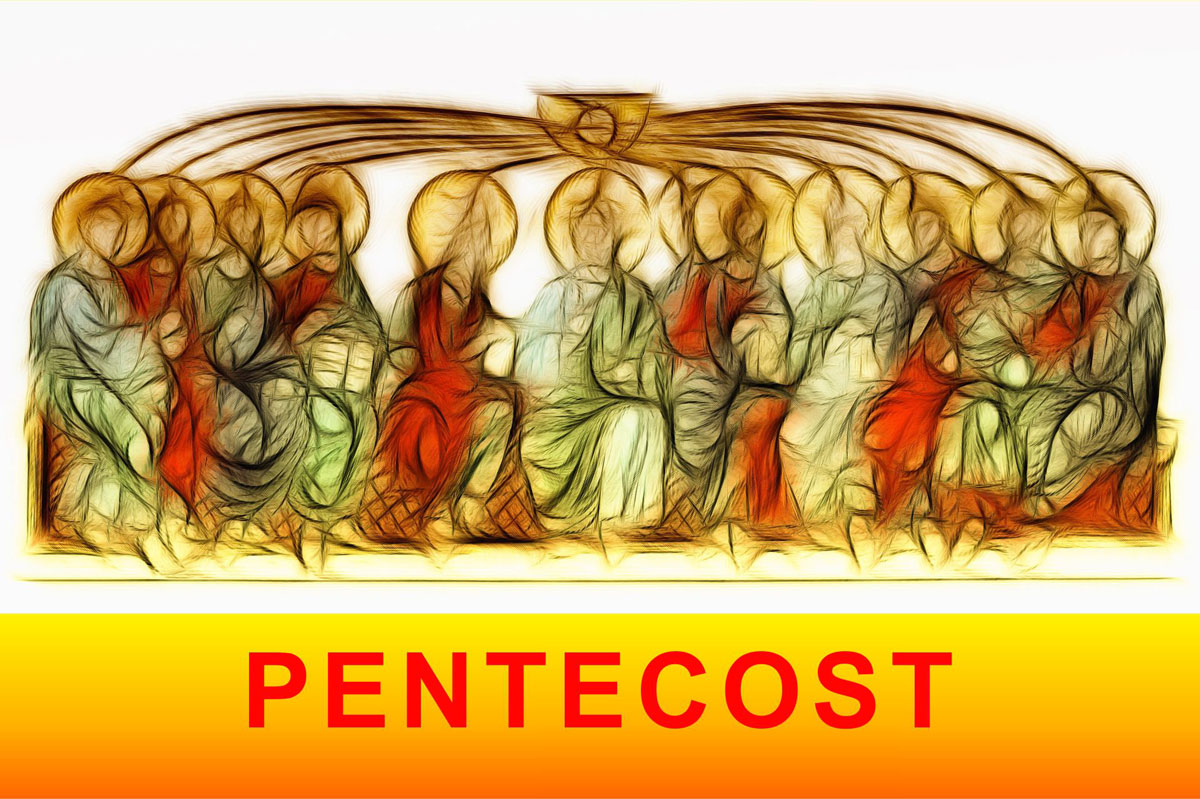Editor: The Revd Canon Derek Earis
Contents
- LETTER FROM AN EMPTY VICARAGE by Revd David Simpson
- STAYING TOGETHER THOUGH APART by Charles Kightly, Churchwarden
- A CHALLENGE FROM OUR READERS by Janet Fox, Jose Knowles and Peter Wells, Readers
- TODAY’S DINOSAUR? by Revd Sue Rushton
- EMOJIS QUIZ
- PEACE AND RECONCILIATION by Revd Kingsley Boulton, Deacon
- CHARLES DICKENS AT ALL SAINTS PAVEMENT!
- THANKS TO LIAM by Revd Derek Earis
LETTER FROM AN EMPTY VICARAGE by Revd David Simpson
This is the season where some of us would be looking forward to the long planned holiday, wedding, trip to the coast, visits to historical houses. All of which were cancelled due to the lockdown. The government may have given some roadmap for exiting lockdown, but we still don’t know when, or if, life will return to normal. So planning for the future feels impossible. All we have is the here and now. We wait with anticipation of what the future holds for ourselves and the city centre churches.
The disciples waited with anticipation of what the future held after the Ascension: the outpouring of the Holy Spirit. Anticipation plays an important part in our journey with God. For nothing stops mission, even if the churches are closed. God through the Holy Spirit enables us to show that his love is without bounds.
Our God is the God of Creation who brought order out of chaos; our God is the God of Israel who brought slaves into the promised land; our God is the one who, when we have gone astray from God’s principles, has sent prophets to call us back to himself; our God is the one who is also Jesus our teacher, prophet and saviour who tells us that love is not reserved for the powerful but for all of humanity; all are equal before God. Our God is the God of Creation who brought order out of chaos; our God is the God of Israel who brought slaves into the promised land; our God is the one who, when we have gone astray from God’s principles, has sent prophets to call us back to himself; our God is the one who is also Jesus our teacher, prophet and saviour, who tells us that love is not reserved for the powerful; and our God is of the Spirit that uses the churches of the city centre to reach out to others in the pandemic crisis.
Jesus tells the disciples that they will not be abandoned by God as events unfold. They are told that God will send a new advocate that will help the disciples and future generations discern the will of God as new issues and problems emerge.
Today the Holy Spirit guides the churches, enabling them to reach out in the communities. That through Jesus we will never be alone during the bad or good times. Our God is one who is always there in the midst of our lives. Thanks be to God.
From Morning Prayer, one of the first prayers of the morning:
Blessed are you, creator God, to you be praise and glory for ever. As your Spirit moved over the face of the waters bringing light and life to your creation, pour out your Spirit on us today that we may walk as children of light and by your grace reveal your presence. Blessed be God, Father, Son and Holy Spirit.
STAYING TOGETHER THOUGH APART by Charles Kightly, Churchwarden
Together Though Apart: The Lockdown at St Denys’s
In these difficult times, it isn’t easy for congregations to stay spiritually together while physically apart. At St Denys’s, we’ve tried to do this very simply, by having a together/apart prayer time every Sunday at 10-10.15 am, with everyone saying the Grace together at 10.15 sharp, wherever they are. The clergy who would have been leading each Sunday’s service have kindly offered a short thought and prayer for us to use that week.
Not being quite as IT-savvy as some congregations (some of us, shock horror, don’t even have smartphones) live streaming of services wasn’t really an option. So the thoughts and prayers are sent out to all on an emailed ‘message list’, with printed versions by post or hand delivery to those without internet access.
The ‘list’ has also turned into a newsletter with photos, and we’ve heard for instance how Rosie Evans, our pop-up clarinettist, has played requests for various parishioners around York, and how Jose and Dennis (the Dynamic Duo) have deep-cleaned the church carpets, which turn out to be a much brighter red than anyone remembered. Birthdays have been ‘celebrated’, bereavements sympathised with and prayers requested, and Jose sends out E-cards every week.
Printable versions of the list include everyone’s phone numbers and postal addresses, so we can all keep in touch in traditional ways. Anyone on the list can contribute by email. It certainly helps that we are a sort of village congregation, where everyone knows everyone else.

Some of us have also enjoyed the online services (and music) from All Saints Pavement and elsewhere, and the techno-whizzes Simon and Sam continue to host regular Zoom ‘virtual pub meetings’. No substitute for the real thing, of course, and we all look forward to getting back into church, however wide apart we have to sit.
Yet in some ways being apart has brought us closer together, in spirit if not in body.
A CHALLENGE FROM OUR READERS by Janet Fox, Jose Knowles and Peter Wells, Readers
Introduction
The following article was written before lockdown. Do read to the end where there are some comments about the very heartening response to the coronavirus situation, showing that our churches are still very much alive and able to cope and indeed thrive in these unusual conditions. We do thank our Readers for their huge contribution to our parish life, not least of which is their ministry of preaching and reflection.
Derek Earis
The Writing on the Wall:
What the Readers Make of it
It is as plain as climate-change that our Church, nationally, is facing the threat of extinction. As this table from Church of England: Statistics for Mission (2019) shows, losing around 10,000 worshippers per year, we are on target to hit zero by about 2080.

The older among us may take comfort from the consideration that the present system will probably see us out. But the outlook for our children and grandchildren, and their contemporaries, is bleak. If we value our faith, we should hope that our churches will survive with their fellowship, worship, traditions, music, and architecture intact or, preferably, enhanced. Not as museums, nightclubs or coffee-shops.
If our numbers and our giving diminish, our allocation of stipendiary priests will be still further reduced, plunging us into a vicious cycle of weakness leading to smaller congregations, and smaller congregations leading to greater weakness. If they increase, on the other hand, our allocation may well be increased proportionately, leading to a virtuous cycle of growth and strength.
Our churches have chosen the second of these options, for we have stated in our profile that we want our new priest to “have a vision for growing the churches in the City Centre Group.” It would be strange if it were otherwise, for all priests at their ordination make a vow before God that they will “lead Christ’s people in proclaiming his glorious gospel, so that the good news of salvation may be heard in every place” [Common Worship: Ordination of Priests (https://www.churchofengland.org/)].
And we should proclaim the gospel of Jesus, not for the sake of increasing the size of our churches in a possessive or triumphalist way, but in order to reach out in love to people who are loved by God, with God’s message for them.
In the following articles my Reader colleagues, Janet and Jose, join me in pondering how we might help our new priest-in-charge to fulfil this vocation by bringing the Good News to the heart of York.
Peter Wells
Janet Fox: “Follow me, and I will make you fish for people” (Matthew 4:19)

Is it just me, or has advertising – particularly TV advertising – become more and more obscure? I have to admit that I am finding it harder and harder to grasp not only what is being advertised but why they are actually bothering. And as if product advertising hasn’t become bad enough – what about ‘people’ advertising? As P. T. Barnum had it, ‘there is no such thing as bad publicity’ – although with the number of negative stories that abound, I am beginning to wonder – and ‘it is better to be looked over than overlooked’ (Mae West).
Time was, though, when the only way of advertising something was by word of mouth – when people talked to each other and communicated face-to-face with proper words. Getting a message from one place to another depended on people carrying information and passing it on and that is how things were when Jesus was around. But just look at the people he chose to be what we might call his PR men or ‘spin doctors’ – or at least, the first people he chose: simple fishermen from the shores of the Sea of Galilee.
Possibly not the wisest choice, you might at first think, for followers, for the ones who were going to have to convince the rest of the world of the wonderful news of Jesus after he was gone. But, clearly, there is far more to the selection of these early supporters than meets the eye. I am convinced that there is something much deeper in the choice of Simon Peter and Andrew and then James and John, and that lies largely in what characterises the nature of a good fisherman.
To begin with, fishermen must be men of great patience, not expecting immediate results. As far as I can gather, fishing depends very much upon the waiting game. Then they have to have a certain amount of tenacity and perseverance to keep on trying until they get some sort of result. They need courage, and they need to be perceptive enough to recognise the right moment to cast their nets to make a successful catch. They need to be able to select the right sort of bait for what they are attempting to catch, and also to keep themselves out of sight. What fish is going to take the bait if it is aware of a boat or human shadow lurking there?
If you look carefully at these characteristics, I think you will find that they make the basis of an excellent job description for any follower of Jesus – then or now – who wants to share the wonderful news that we know and believe.
We need to be patient and not look for immediate results.
When passing on the good news, and telling people what we know, we mustn’t expect them to instantly agree with us. We have to have the tenacity and perseverance to keep on trying to help people understand what we believe to be true, the benefits and the beauty of the gospels.
We will need a certain amount of courage.
I don’t think any of us would deny that it is hard to face the threat of opposition and possibly ridicule that we may have to encounter.
We need to be perceptive…
…enough to know when to speak and when to keep silent – there are many times when it would be counter-productive to try talking to someone and, most importantly there are many, many times when simply listening will do the trick.
We also need to know the right bait to use
– an odd way of putting it, perhaps, with its connotations of temptation and entrapment – but we have to know the people we are talking to, and speak to them on their level, using the right sort of words for them. There are as many ways of helping people to understand the Gospels as there are people and we can’t expect a ‘one-size-fits-all’ approach to work.
Finally, and most importantly, we must keep ourselves out of sight.
It isn’t ourselves we are trying to draw attention to – our aim is to introduce people to the Jesus that we know and love. We are of no real importance. It isn’t some sort of exercise to see how many we can catch, and consequently how clever (or even how Christian) we feel ourselves to be.
We all need to be publicity agents for Christ – it is now our turn to pass on the message – and it is one that relies very heavily on personal communication. We must, of course, use all those qualities of tact, discipline and timing that can be learned from those early fishermen, because every word that we use about our faith will be judged by others – and you can be equally sure that people will notice if we don’t talk about it.
If God does mean anything to us, we shouldn’t keep it to ourselves. Not to share it would be indescribably selfish – and we take on this role not by great gifts of oratory and learning, but by choosing the right moment to speak sincerely about our experiences. That is the way that we will become successful fisher-folk for Christ.
That is the way that we can gain people’s trust and confidence and help them understand what is so wonderful about our faith.
Janet
Jose Knowles: “I will make you fish for people” (Matthew 4:12-23)
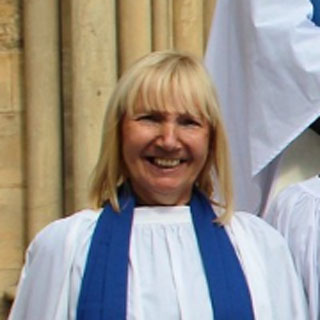
Jesus said, “Follow me, and I will help you fish for people.” The church throughout history has taken this as a call to mission and evangelism – and so it is. But underlying it is the personal challenge that all of us face when we become Christians, that Jesus will take us in a direction that we least expect.
When you go fishing with Jesus, you need to move from the shallow end, and travel into the vast, often unknown, deep, reaching out, moving closer to where the people are. Now, I am not a swimmer. I can paddle about and if I’m really brave have ventured into the deeper end with support of a trusted rubber ring!
Following Jesus is never stationary. Just as Jesus moved throughout his ministry to meet the needs of people around him, you and I are called to move around in our ministry.
The idea that we just sit here in this church building and God does His work here is not completely true. Yes, there is the idea that we tell people to “Come and see.” At the same time, we are called to be a “moving people.” We go where God leads. Not just in occupation, in housing, in location, but also in the lives of people around us.
God moves me to you, God moves me to my neighbour, God moves me to someone he puts in my mind to reach out to. To reach people, you have to be moving where they are. If you are going to catch fish, you have to go to where the fish are swimming.
Jesus called us to follow Him, he calls us to share his message of hope and change with all peoples. “Follow Me,” He told them, “and I will make you fish for people!” (Matthew 4:19)
If you look at the two groups of people he addresses, you also find that he deals with two different methods of fishing. Each way to fish is also the way to fish for people:
HOW TO GO FISHING
Casting the net and dragging it in
This kind of fishing is like when we do events. We put together a “net” event and we draw people in to let them hear the Gospel.
Fly rod fishing
This kind of fishing is like when we meet people. We go out to where the fish are. Notice that James and John were in the boat out in the sea fishing. You can’t fish from a distance. You can’t fish very well online. You have to go out and meet people. You have to step out into the water to fish.
After I was licensed as Reader, I began to ‘Go Fishing’, something that had been in my thoughts for some time, and which needed action. After discussion with the PCC plus the St Denys Church family, it was agreed that we would look to start a Tea and Chat with Nibbles and Giggles Cafe in the Church Hall, with the hope to reach out to people in the community and beyond it.
I introduced myself and made connections throughout the area with a vast array of people such as the local supermarket, local businesses, Walmgate Residents Association, York City Council’s Local Area Co-ordinator, and support agencies such as Changing Lives, together with many local people. We were blessed with offers of support and we began our Tea and Chat which brings much joy and has started to flourish and also led some people to join in worship with us. We are hoping to share the mission of Jesus as we develop and grow both within and outside of Church Worship.
On occasions when we have opened the Church to visitors, for example York Residents Weekend, I have sat on the church wall with a cup of tea, chatting to the folk passing by, which encouraged people to “Come and See”, and made others smile and see ‘Church’ on the outside. This joyfully bore fruit in the form of a new member of the congregation.
The early disciples underwent a radical reorientation of their allegiances, their occupations, their entire lives. The same should be true with each and every one of us. We follow Jesus, he changes us, and we want to go fishing with Him. When you go fishing with Jesus, he teaches you, and as you grow in your relationship with him, miracles start to follow.
So my question to you today is this: Do you want to go fishing?
Blessings with Love and Hugs!
Jose
Peter Wells: “Go and make disciples of all nations” (Matthew 27.19)
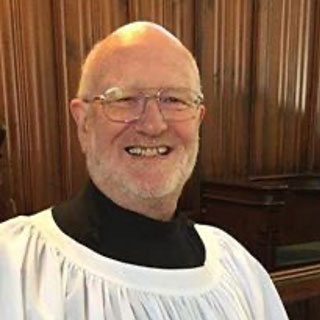
To share the good news of an interesting book, a delicious new recipe, or an England Test Match victory is a normal human activity. How much more appropriate should it be to share the good news about the inspirational activities of our churches, God’s recipe for a better life, or Jesus’s victory over sin and death? Yet on these latter topics we are, on the whole, strangely silent. At any rate, I am.
In my youth I knocked on doors to invite people to come to parish missions, and nobody came. On the rare occasions when I have begun to express a halting recommendation of Christianity, I have been confronted with unanswerable responses such as, “Don’t talk to me about religion. I was brought up in Northern Ireland.”
These, and similar rebuffs, have left me wary, in speaking to non-Christians, of celebrating the achievements of our Church. I’m all too aware of the Church’s failures, from the Crusades, through our condoning of the slave trade, to the cover-up of child abuse. They leave me tongue-tied.
I wish I was outgoing and confident, like Jose, whose article I hope you’ve just read. However, I’m not. Instead, for most of my life, I have tried to persuade myself that my calling was to work for the Church from within, and to leave the task of mission to others better qualified. Now I am increasingly certain that that was a shameful cop-out.
So here, for people like me, is a modest proposal that would not put any of us at risk of stressful confrontations with non-Christians. My idea is that we should try, in a positive spirit, simply to inform our neighbours about something that we love, and that they might love too. You could call it, ‘Evangelism Lite’.
I suggest we all write down a sentence explaining “Why I go to church.” My sentence, I think, might be, “I find God there, and go away with a song in my heart.” (I’m still working on it.)
Alternative or additional topics might be:
- ‘What Jesus means to me’
- ‘What God has done for me’
- ‘What we do in our church’.
It’s something families might do together. Apart from anything else, it’s quite a good spiritual exercise!
These statements, accompanied by pictures of our happy smiling faces, can can be edited by a committee into attractive hand-outs, to be distributed to as many homes in the area as we can manage, by hand or by post, and to any public place that will allow them to be displayed. They can be posted on Facebook or other social media, and shared and re-shared and re-tweeted ad infinitum. We should contact the press and local radio. And we should make it clear in every one of these messages where they come from, how people can find us, and how welcome they will be.
Some things to do before we all rush off and go viral:
- PCCs and churchwardens must put plans in place to welcome and care for the strangers who come to visit us. This does not just mean having someone to hand out the hymnbooks. It means creating and maintaining an effective system of pastoral care for all our members and adherents.
- All relevant personnel must obtain professional training in dealing with newcomers to churches. Otherwise, our visitors will not stay long, or give us a favourable review. Being basically a nice person is not a sufficient qualification for dealing with strangers sensitively and effectively.
- Our websites should be attractive, clear, and up to date. These days, for nearly all people, their gateway to churches is the internet.
- We must ALL pray, at every stage.
These articles were written before the lockdown, but my experience of our churches’ response to the situation has been inspirational. All our churches have responded with enthusiasm, ingenuity, determination and humanity to the closure of buildings, in a way we can all be proud of. Let us capitalise on the momentum that this success has given us and face the future with renewed confidence.
Before we actually put anything in place, we should wait until our new priest-in-charge arrives. However, he or she would be disappointed, on arriving, to find that we had not given any thought as to how growth might be achieved. So the purpose of this short article is to generate discussion. Does my back-of-envelope idea need minor tweaking? Major tweaking? Or do you think it is a non-starter? Quite possibly it is: mission is an area in which I am utterly unqualified. But if you think my idea is unworkable, what’s yours? Whatever Matthew’s words “Go and make disciples” mean, they must mean something.
Peter
TODAY’S DINOSAUR? by Revd Sue Rushton
Making History
Earlier this year (before lockdown), David and I went back to my old parish of Frampton Cotterell just north of Bristol, for me to speak at the Memorial Service for a very dear ex-churchwarden. The service was on a Saturday, so we stayed overnight and went to church there on the Sunday morning. At the end of the service, the man taking it (whom I didn’t know) told the congregation that they had had a very special starry guest there, someone who had made history etc. etc. I was confused, as I hadn’t realised that they had other guests as well as us and looked around to see whom he might be talking about. Then the penny dropped – he was greeting me!!!
He was an older man, probably only recently ordained, and it must have seemed to him that I was something rare and exotic, a woman who had been amongst the first women ordained priest in 1994 and in fact one of the first women deacons in 1987. That was quite a shock to the system, I can tell you. It meant that I had sort-of come full circle.
I had arrived in the parish, newly priested, in the autumn of 1994, something rare and exotic – a woman priest – most people there had never seen one before (other than Dawn French on the television, of course) and many of them were very dubious about what one might be like. Then I lived through all the adjustments that our Church of England and her people made to accept and absorb my ministry, relished the years of more-or-less gender-blindness in my parish ministry, retired here to York, where I have been relatively out of touch with church politics, and ended up, at least in the eyes of that priest, rare and exotic again because I had ‘made history’!!!!
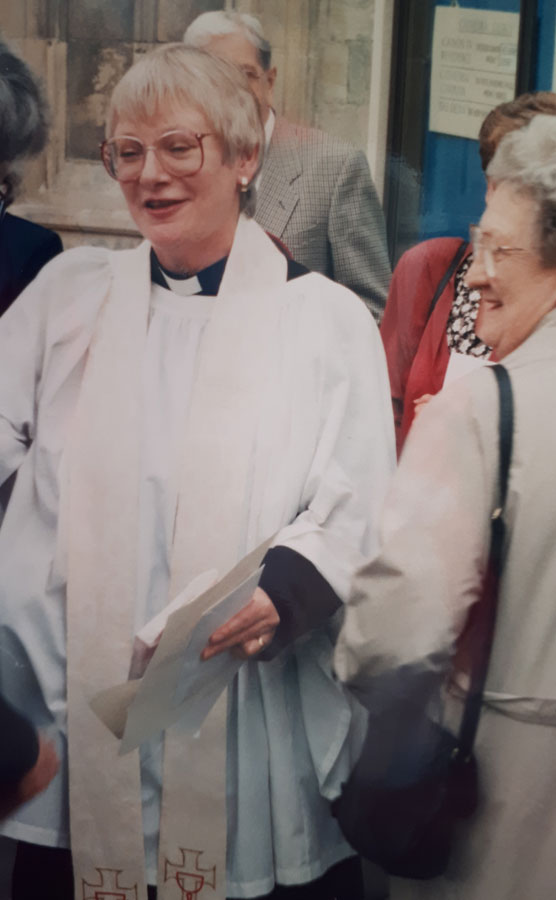
I was touched by his kind welcome. His way of offering it to me was very illuminating, and gave me much food for thought. He was expressing, I think, his experience of today’s Church of England, where, apart from a few pockets of resistance, women’s ministry is normal and natural and had been since long before his ordination.
I reflected back to the service of celebration of 25 years of women’s priestly ministry in the Chapel at Lambeth Palace that I had attended last year. There, several women had spoken about their ministries, including one delightful girl, in training for ordination herself, who told us that she had been a toddler when women were first priested in 1994!! And of those involved in her selection process for her training, her parish priest, her Diocesan Director of Ordinands and her Bishop had all been women. I don’t think many of us could have imagined that in 1994. How much has changed in the quarter century since then.
Being Part of History Now
Both things taught me that more has been changing around me in recent years than I had realised, and that somehow, without my noticing it, I and my experience had become part of history.
As I have been reflecting on that during this strange pause in our lives, I have come to see it as a helpful reminder that even the biggest changes in our lives, both inside the church and outside in the world, become normal and then history remarkably quickly. Though not all changes are quite as extreme as this coronavirus pandemic, change is happening all the time, and we can and do adjust to new normals all the time. Sometimes it is harder to adjust than others, but we do it eventually.
We cant imagine what the future holds for us – not now and not ever, really. But we can be sure that our children and grandchildren will be able to tell their children and grandchildren about this time, the coronavirus spring and summer of 2020, as a strange and unsettling experience that happened long ago – history.
EMOJIS QUIZ
Can you recognise 30 Bible stories from the emojis?



Emojis Answers
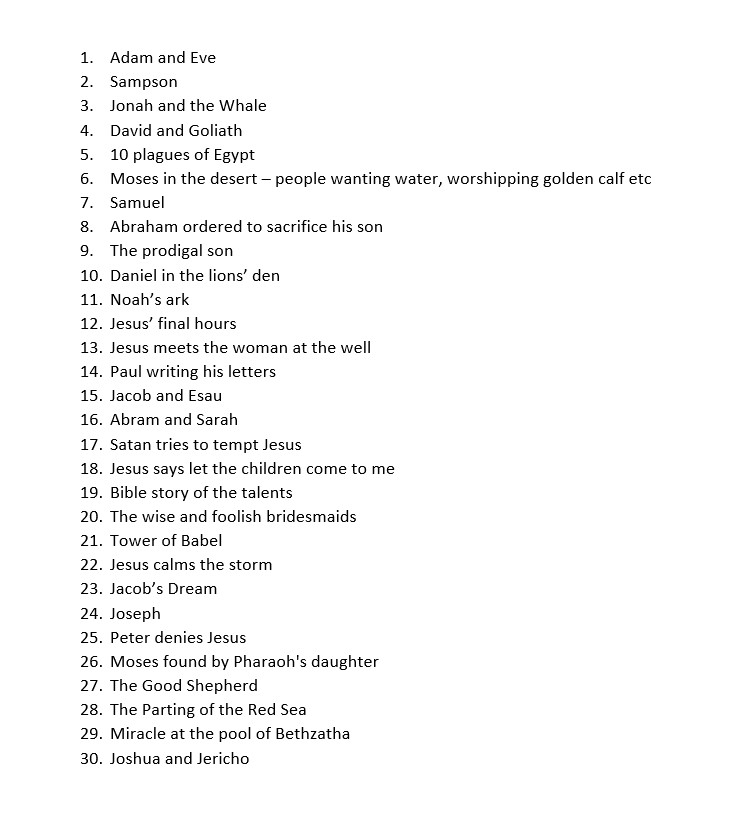
PEACE AND RECONCILIATION by Revd Kingsley Boulton, Deacon
Peace and reconciliation are at the heart of the Christian gospel. They are central to what we believe is God’s will for all humanity and for the whole of creation. Jesus said to his disciples: “Peace I leave with you; my peace I give to you” (John 14.27). St Paul declares to the Christians in Corinth: “All this is from God, who reconciled us to himself through Christ, and has given us the ministry of reconciliation; that is, in Christ God was reconciling the world to himself, not counting their trespasses against them, and entrusting the message of reconciliation to us” (2 Corinthians 5.18-19). That Good News is addressed to all of us too: peace and reconciliation with God and with one another.

The Role of St Martin Coney Street
Within our group of city centre churches St Martin Coney Street has a particular role to play. Following its destruction on 29th April 1942 and its partial restoration in the 1960s it was dedicated to peace and reconciliation. In April 2012 the church became a partner in the international Community of the Cross of Nails, whose aims are: to heal the wounds of history, to build a culture of peace, and to learn to live with difference and celebrate diversity. The Community grew out of the response to the destruction of Coventry Cathedral in 1940. That response is well summed up in the words inscribed behind the altar in the Cathedral ruins: “Father forgive” – words which are also on the floor below the St Martin’s window in St Martin’s church in York. Originally crosses were made from nails from the bombed Cathedral, though that at St Martin’s is more recent and was made by prisoners in Germany.
You can read more about the St Martin’s cross of nails here.
The Community of the Cross of Nails
There are currently over 230 active partners worldwide, predominantly in the United Kingdom and Germany, but also in Australia, Austria, Belarus, Belgium, Bosnia and Herzegovina, Burundi, Canada, Cuba, Georgia, Hong Kong, India, Iraq, Israel/Palestine, Namibia, the Netherlands, New Zealand, Norway, Poland, Romania, Russia, Slovakia, South Africa, Sudan, Switzerland and the United States of America. Partners include churches, schools, charities and other organizations. New partners are welcomed each year. There is also a sister organization, Together for Hope, which is open to partners of other faiths or no faith. Kingsley Boulton is a member of the Community of the Cross of Nails UK Board.

Services and Special Events
Central to the prayer life of the Community of the Cross of Nails is the Coventry Litany of Reconciliation. This is said at all services at St Martin’s, where on Fridays at 12 noon prayers for peace and reconciliation are also offered. Whilst churches are currently closed resources are posted each week here comprising a Bible reading, reflection, prayers and the Coventry Litany.
During the year we mark in particular Holocaust Memorial Day on 27th January, the United Nations International Day of Peace on 21st September and the Reception of the Bethlehem Peace Light on the Saturday before Christmas. Since 2012 we have enjoyed a link of friendship with the Marienkirche (St Mary’s Church) in Lübeck in northern Germany with whom we have had a number of reciprocal visits.

We are a small group at St Martin’s and would very much welcome others who would like to share in this important ministry of peace and reconciliation.
For further information please contact the Revd Kingsley Boulton, Deacon.
CHARLES DICKENS AT ALL SAINTS PAVEMENT!

No, not a miracle appearance but a chance to commemorate the 150th anniversary of the death of the famous Victorian novelist and writer.
He died on 9th June 1870.
Evensong, Sunday 14 June @ 6.30pm
We have a local Dickens expert, Professor John Bowen, Professor of Nineteenth-Century Literature at York University, who will speak on the topic
“Charles Dickens and Christianity”
during online Evensong on Sunday June 14th to be broadcast at 6.30pm.
Do tune in at that time to www.facebook.com/ASPyork. It should be fascinating.
THANKS TO LIAM by Revd Derek Earis
We do thank Liam Page for his work in editing Touch Base over the last year or so. Liam now finds that with his University work and his forthcoming teacher training course he is unable to continue in this role. We wish Liam well in his studies and his future career and are most grateful for all the time he has spend on Touch Base.
For the time being Touch Base will continue as an online magazine and be hosted on the St Olave’s web site. The intention is that as soon as the City Centre Churches website is ready it will move there [September 2020] but in the meantime we are most grateful for its temporary home and for Tina Sanderson who is helping to edit and publish it. For the time being please send any contributions either directly to Tina at website@stolaveschurch.org.uk or to Derek Earis at derek.earis@stolaveschurch.org.uk.
